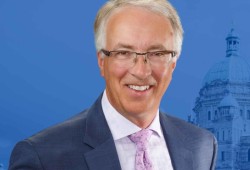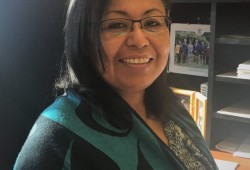With the provincial election looming, the words of candidates are being carefully scrutinized, including what Conservative leader John Rustad said earlier this year. On Feb. 1 the former minister of Aboriginal Relations and Reconciliation posted this statement on the Conservative Party of BC’s website: “We must also repeal the United Nations Declaration of Rights of Indigenous Peoples, which was established for conditions in other countries — not Canada.”
The First Nations Leadership Council say that repealing the Declaration Act, legislation passed in 2019 that sets to align B.C. laws with UNDRIP, would undo decades of progress made toward affirming their Aboriginal rights and title.
On Sept. 30, National Day for Truth and Reconciliation, the Conservative Party of BC released statements about how it would promote Indigenous rights. The party said that UNDRIP would be honoured, but criticized how the Declaration Act, or DRIPA, has been enacted since 2019.
“DRIPA legislation was intended to represent a shift towards reconciliation and the recognition of Indigenous self-determination in British Columbia,” stated the Conservatives. “However, its implementation and interpretation by the NDP has stalled Indigenous-led development in industries like mining, forestry, natural gas and other sectors.”
The party noted that it would work with First Nations to develop new legislation to advance “economic reconciliation and Indigenous autonomy.”
The First Nations Leadership Council is concerned of what this could entail.
“This ‘plan’ will set us back decades and will continue to pit First Nations against other British Columbians,” stated the council.
Cheryl Cassimer of the Ktunaxa Nation played an integral role in the establishment of the United Nations Declaration on the Rights of Indigenous Peoples Act (DRIPA), and continues to advocate for the implementation of the DRIPA Action Plan.
DRIPA, she told Ha-Shilth-Sa, recognizes Indigenous Rights as human rights. It comes from UNDRIP and is fully endorsed by the governments of British Columbia and Canada. B.C. was the first Canadian province to make UNDRIP law under John Horgan’s NDP government in 2019.
“It’s the first time in our collective history that Indigenous rights are being recognized as human rights,” said Cassimer.
Described as a framework for reconciliation, Bill 41 (DRIPA) requires the government to take all measures necessary to ensure the laws of British Columbia are consistent with the United Nations declaration. It aims to create a path forward that respects the human rights of Indigenous Peoples while introducing better transparency and predictability in the work they do together.
Cassimer says she doesn’t know how Rustad would go about repealing DRIPA if he wins the election.
“It’s law and it states he must have free and prior informed consent to do certain things…I don’t think he’s going to get that level of consent from First Nations in the province,” she told Ha-Shilth-Sa.
The FNLC notes that Mr. Rustad's platform includes a number of things the Eby government is already working on, including loan guarantees for equity in natural resource projects, capacity building, treatment and recovery services, as well as transferring authority over child welfare services.
“It (Rustand’s platform) also includes a commitment to ‘strategic land return to First Nations’ and returning 20 per cent of B.C.'s forests to FN to manage, despite the current government having already transferred over 20 per cent of forestry tenure to First Nations and [having] set up collaborative planning through forest landscape planning tables,” FNLC stated.
“Our policies focus on fostering partnerships between First Nations and the private sector, unlocking opportunities in industries such as natural resource management, fisheries, forestry, and clean energy,” stated Rustad.
He stressed that First Nations should be enabled to be “leaders in British Columbia’s economic future.”
“Economic reconciliation is not only the key to self-determination but also the foundation for the health and prosperity of Indigenous communities across our province,” he continued. “As former minister of Aboriginal Relations and Reconciliation, I signed over 435 agreements with First Nations, and I know that true reconciliation is achieved through direct engagement, respect for governance structures, and empowering Indigenous communities to control their economic future.”
This is part of the reason that DRIPA was enacted, says Cassimer, as it recognizes Aboriginal rights and title to the land and resources, requiring that First Nations are consulted in a meaningful way. Citing the conflict over the Coastal Gaslink pipeline in Wet’suwet’en territory, Cassimer said then-premier John Horgan met and negotiated with the Wet’suwet’en to resolve the dispute. She said she didn’t think that negotiation could have happened without government recognition of Wet’suwet’en inherent rights and title.
She expects Rustad would be met with resistance if he tried to repeal DRIPA.
“That would be going back to square one and back to conflict all over again,” said Cassimer.
“First Nations are not interested in going back decades with the work we have done – where decisions are being made without us and we’re not going back to a place where development can happen in our territories and with absolutely no regard to who we are and our right to the land,” she stated.
Cassimer reminds people that voting on election day is their individual right and responsibility. She suggests voters do their research and ask questions of their candidates so that they can make informed decisions.
“Find out what their values are and what they really think about our rights and title to our land,” she advised.



